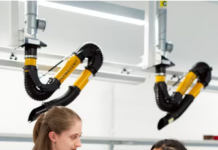Health tech innovations are at the forefront of transforming healthcare delivery, improving patient outcomes, and enhancing the overall quality of healthcare services. As technology continues to advance rapidly, the future of health tech is marked by key trends and developments that are shaping the healthcare landscape and driving innovation across various domains.
- Telemedicine and Virtual Care: Telemedicine and virtual care have gained significant traction, especially in light of the COVID-19 pandemic, and are expected to continue evolving in the future. Remote consultations, virtual health platforms, and telehealth solutions enable healthcare providers to deliver care remotely, improving access to healthcare services, reducing healthcare costs, and enhancing patient convenience. The integration of telemedicine with AI-driven tools, remote monitoring devices, and digital health records enhances clinical decision-making, patient engagement, and continuity of care.
- AI and Machine Learning in Healthcare: Artificial intelligence (AI) and machine learning (ML) are driving transformative changes in healthcare, from diagnostics and predictive analytics to personalized medicine and population health management. AI-powered diagnostic tools, predictive models, and clinical decision support systems improve diagnostic accuracy, identify treatment pathways, and optimize healthcare outcomes. ML algorithms analyze vast amounts of healthcare data, generate actionable insights, and facilitate evidence-based practices, leading to more efficient healthcare delivery and improved patient outcomes.
The future of health tech innovations encompasses a wide range of developments and trends that are reshaping healthcare delivery, patient care, and healthcare systems:
- Digital Health Platforms and Wearable Devices: Digital health platforms, integrated electronic health records (EHRs), and wearable devices play a crucial role in empowering patients, promoting preventive care, and enabling continuous monitoring of health metrics. Wearable technologies, such as smartwatches, fitness trackers, and biosensors, track vital signs, activity levels, and health behaviors, facilitating early intervention, health management, and wellness promotion. Digital health platforms aggregate patient data, facilitate care coordination, and support remote patient monitoring, enhancing healthcare accessibility and patient engagement.
- Precision Medicine and Genomic Technologies: Precision medicine approaches, guided by genomic technologies, biomarker testing, and personalized treatment strategies, are driving advancements in targeted therapies, disease prevention, and genomic medicine. Genomic sequencing, gene editing techniques, and pharmacogenomics enable personalized diagnostics, tailored interventions, and precision oncology treatments, improving treatment outcomes and reducing adverse effects. Precision medicine innovations optimize healthcare resources, enhance therapeutic efficacy, and address healthcare disparities by delivering tailored care based on individual genetic profiles and clinical characteristics.
The adoption of health tech innovations presents challenges and considerations that require strategic planning, collaboration, and ethical considerations:
- Data Privacy and Security: Health tech innovations raise concerns about data privacy, security breaches, and regulatory compliance, particularly with the collection, storage, and sharing of sensitive patient information. Safeguarding patient data, implementing robust cybersecurity measures, and adhering to data protection regulations are essential to maintain patient trust, confidentiality, and data integrity in health tech ecosystems.
- Ethical and Regulatory Frameworks: Ethical considerations, transparency, and accountability are critical in the development, deployment, and use of health tech innovations. Ethical frameworks, regulatory guidelines, and best practices ensure responsible innovation, ethical use of AI algorithms, and patient-centered care, aligning health tech advancements with healthcare ethics, patient rights, and societal values.
In conclusion, the future of health tech innovations is characterized by transformative trends, technological advancements, and collaborative efforts that drive healthcare innovation, improve patient outcomes, and enhance healthcare accessibility and affordability. Embracing digital health solutions, AI-driven technologies, and personalized medicine approaches will shape a more connected, efficient, and patient-centric healthcare ecosystem in the years to come.






























